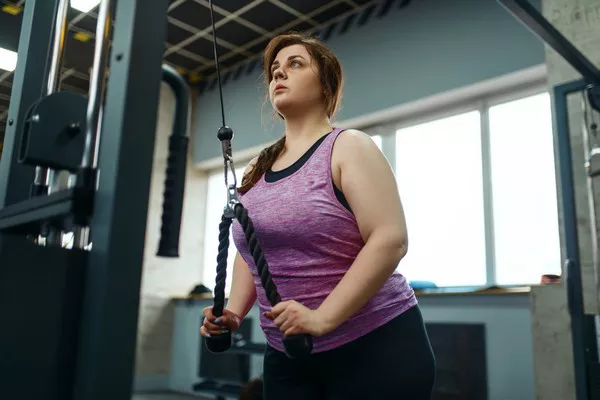Improving cardiovascular health is a vital component of overall fitness, and many people aim to enhance their cardio performance without necessarily losing weight. Whether you are an athlete looking to boost endurance, someone recovering from an injury, or simply seeking better heart health, there are effective strategies to improve cardio without significant weight loss. This article will explore various approaches, including exercise routines, dietary adjustments, and lifestyle changes to help you achieve your cardio goals while maintaining your current weight.
Understanding Cardiovascular Fitness
What is Cardiovascular Fitness?
Cardiovascular fitness, also known as cardio or aerobic fitness, refers to the ability of the heart, lungs, and circulatory system to supply oxygen-rich blood to working muscles during sustained physical activity. Key benefits of improved cardiovascular fitness include:
1. Enhanced heart and lung function.
2. Reduced risk of chronic diseases such as heart disease, stroke, and diabetes.
3. Improved mental health and reduced stress levels.
4. Increased stamina and endurance.
Why Maintain Weight While Improving Cardio?
For various reasons, you might want to enhance your cardiovascular fitness without losing weight:
Athletic Performance: Athletes in weight-class sports or those who need to maintain muscle mass might focus on cardio improvements without shedding pounds.
Health Recovery: Individuals recovering from illness or injury might need to avoid weight loss while still engaging in cardiovascular activities.
Personal Preference: Some people feel more comfortable and confident at their current weight and prefer to focus on fitness improvements without altering their body weight.
Exercise Strategies to Improve Cardio Without Losing Weight
Low to Moderate-Intensity Cardio Workouts
Engaging in low to moderate-intensity cardiovascular exercises can improve heart health and endurance without significantly burning calories that could lead to weight loss. Examples include:
Walking: A brisk walk for 30-60 minutes daily can enhance cardiovascular health without excessive calorie expenditure.
Cycling: Enjoying leisurely bike rides can boost cardio fitness while allowing for a manageable calorie burn.
Swimming: Swimming at a moderate pace improves cardio fitness and is gentle on the joints.
Interval Training
High-Intensity Interval Training (HIIT) is effective for cardiovascular improvement and can be adjusted to prevent weight loss:
Modified HIIT: Incorporate short, intense bursts of exercise followed by longer, low-intensity recovery periods. This approach enhances cardiovascular health without a prolonged high-calorie burn.
Duration Control: Keep HIIT sessions shorter (15-20 minutes) to prevent excessive calorie expenditure.
Strength Training with Cardio Components
Incorporating strength training exercises with a cardiovascular component can build muscle while improving heart health:
Circuit Training: Perform a series of strength exercises with minimal rest in between to keep the heart rate elevated.
Compound Movements: Use exercises like squats, deadlifts, and push-ups, which engage multiple muscle groups and elevate the heart rate.
Active Recovery
Engage in light, active recovery sessions on rest days to improve cardiovascular health without intense calorie burning:
Yoga: A gentle yoga session can enhance flexibility, reduce stress, and contribute to cardiovascular health.
Stretching: Dynamic stretching routines can maintain mobility and slightly elevate the heart rate.
Dietary Adjustments for Cardiovascular Fitness
Caloric Intake Management
Maintaining weight while improving cardio requires careful management of caloric intake:
Adequate Caloric Intake: Ensure you’re consuming enough calories to match the increased energy expenditure from cardiovascular activities. Use a calorie calculator to determine your maintenance needs.
Balanced Meals: Focus on a balanced diet rich in whole grains, lean proteins, healthy fats, and plenty of fruits and vegetables.
Nutrient-Dense Foods
Choose nutrient-dense foods to support overall health and cardiovascular function:
Healthy Fats: Incorporate sources of omega-3 fatty acids, such as fish, flaxseeds, and walnuts, to support heart health.
Lean Proteins: Consume lean proteins like chicken, turkey, beans, and legumes to support muscle repair and maintenance.
Complex Carbohydrates: Opt for whole grains, oats, quinoa, and brown rice to provide sustained energy for cardio workouts.
Hydration
Staying well-hydrated is crucial for optimal cardiovascular function:
Water Intake: Aim for at least 8-10 glasses of water per day, adjusting based on activity level and climate.
Electrolyte Balance: Consider electrolyte-rich drinks if engaging in prolonged or intense exercise to maintain electrolyte balance.
Lifestyle Changes to Support Cardio Fitness
Consistent Sleep Patterns
Quality sleep is essential for recovery and cardiovascular health:
Sleep Duration: Aim for 7-9hours of sleep per night to allow the body to recover and regenerate.
Sleep Hygiene: Maintain a consistent sleep schedule, create a relaxing bedtime routine, and optimize your sleep environment.
Stress Management
Chronic stress can negatively impact cardiovascular health:
Relaxation Techniques: Practice mindfulness, meditation, or deep breathing exercises to reduce stress levels.
Physical Activity: Regular physical activity, even low-intensity, can help manage stress and improve heart health.
Avoid Smoking and Limit Alcohol
Smoking and excessive alcohol consumption can adversely affect cardiovascular health:
Quit Smoking: Seek support to quit smoking and reduce its harmful effects on the heart and lungs.
Moderate Alcohol: Limit alcohol intake to moderate levels (up to one drink per day for women and up to two drinks per day for men).
Monitoring Progress
Track Your Workouts
Keep a record of your cardiovascular workouts to monitor progress and adjust as needed:
Workout Logs: Maintain a log of your activities, duration, intensity, and how you felt during and after the workout.
Heart Rate Monitors: Use a heart rate monitor to ensure you’re working within your target heart rate zone.
Regular Health Check-Ups
Regular health check-ups are essential to monitor cardiovascular health:
Medical Assessments: Schedule annual check-ups with your healthcare provider to assess heart health, blood pressure, and overall fitness.
Fitness Testing: Consider periodic fitness testing to measure improvements in cardiovascular endurance and overall fitness levels.
Conclusion
Improving cardiovascular fitness without losing weight is achievable with the right combination of exercise, dietary adjustments, and lifestyle changes. By focusing on low to moderate-intensity cardio workouts, incorporating strength training, and managing caloric intake, you can enhance your heart health while maintaining your current weight. Additionally, prioritizing sleep, managing stress, and avoiding harmful habits like smoking can further support your cardiovascular goals. Remember to track your progress and consult with healthcare professionals to ensure you’re on the right path to improved cardio fitness and overall well-being.
[inline_related_posts title=”You Might Be Interested In” title_align=”left” style=”list” number=”6″ align=”none” ids=”9008,8928,8925″ by=”categories” orderby=”rand” order=”DESC” hide_thumb=”no” thumb_right=”no” views=”no” date=”yes” grid_columns=”2″ post_type=”” tax=””]































